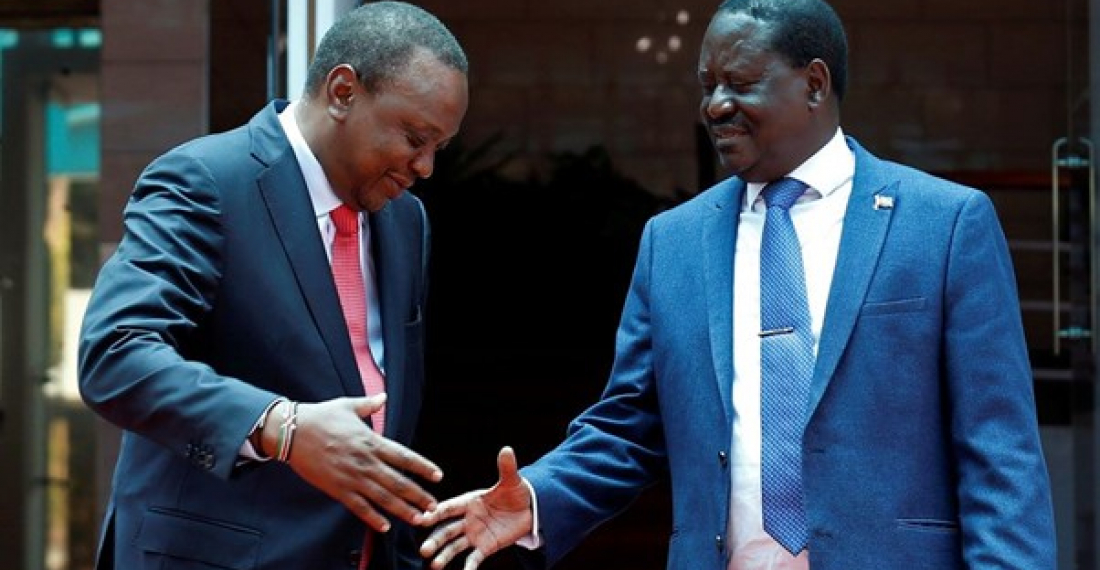Kenyan President Uhuru Kenyatta has announced his support for opposition leader Raila Odinga in the upcoming Presidential elections.
Kenyatta’s Jubilee Party (JP) and Odinga’s Orange Democratic Movement united under the “Azimio la Umoja” (Quest for Unity) banner. Supported also by other smaller political factions, Odinga will take on Deputy President William Ruto of the United Democratic Alliance.
Ruto, 55, was chosen by Kenyatta as leader of the Jubilee Party and his imminent successor. The president in-waiting was however marginalized from mainstream Kenyan politics after the two rivals, Kenyatta and Odinga, formed a coalition in 2018. Kenyatta fired Ruto from his leadership position in the Jubilee Party two weeks prior to his endorsement of Odinga.
The pair united forces, to the surprise of international observers, in 2018, following brutal election violence that left dozens dead and over 100 injured, according to Human Rights Watch. Protesters calling for Kenyatta to step down were met with excessive police force and abusive house-to-house crackdowns throughout the country.
Electors are to vote for the president as well as the parliament in the upcoming elections, due to be held in August of this year. Critics claim that the novel alliance is aimed at solidifying Kenyatta’s position in the Kenyan executive. The coalition introduced sweeping constitutional reform, aimed at establishing the position of Prime Minister. The reform, entitled the Building Bridges Initiative (BBI) is likely to result in Kenyatta taking this position.
Odinga, who is most likely to be victorious in the presidential elections, will enter his fifth race for the presidency, having lost in 1997, 2007, 2013, and 2017. To take on Ruto, Odinga has established a coalition of 26 parties.
The East-African country has a history of election violence. Protests in 2007, after the election of President Mwai Kibaki, led to the deaths of an estimated 800 Kenyans, with a further 1,600 people displaced from their homes.
Mediation, led by former UN Secretary General Kofi Annan, saw the establishment of a Prime Minister, a position, held by Odinga in 2008. The position was again abolished by Kenyatta’s government after the 2013 elections, in a move that granted the president more power.
Odinga, despite losing the presidential election four times throughout his political lifespan, remains immensely popular. Kenyan elections are heavily split by ethnic lines. Kenyatta's Kikuyu tribe, and Odinga's Luo tribe, make up 27% population of Kenya.
The newly formed coalition places Odinga as the likely victor with Ruto presenting a weak challenge. Kenyatta claimed to have chosen Raila Odinga “without any opposition to be the fifth president of Kenya”. Odinga, responding to Kenyatta’s announcement said that the pair’s journey from bitter rivals to political allies “has been the most unlikely in the history of our country”.







